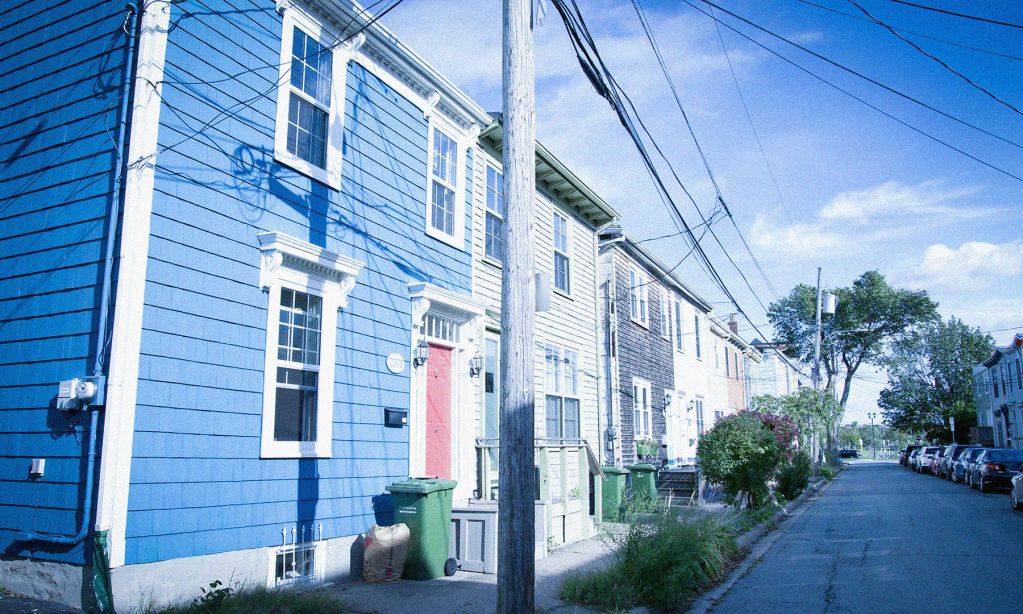Nova Scotians urgently need the government to do more to address our province's lack of affordable housing.Based on the last census, at least 48,000 Nova Scotian renters reported paying 30 per cent or more of their income on shelter, leaving them vulnerable to losing their housing. That represents 35 per cent of tenants. That number is likely higher today.
Rent supplements are one way the government supports renters. However, the province needs to address the problems with these subsidies, particularly given their expanded use, recent changes to program eligibility, and the clear demand for them.
The rent subsidy amount is calculated only to bridge the gap between 30 per cent of a tenant’s income and Average Market Rent (AMR) (and 95 per cent of AMR for those ages 58 and over). This calculation does not consider the actual cost of rent. The AMR figures are updated infrequently and don’t do a good job of capturing the cost of accessible units or vacant units. Anything above the AMR (or 95 per cent of AMR for older renters) is the tenant’s responsibility, making housing affordability a moving target for those most in need.
Two, the cost of utilities is not factored into subsidy calculations, even though utility costs are typically not all included in rent. Data on rentals from CBRM show that 77 per cent don’t include lights, 58 per cent don’t include heat, and nine per cent don’t even include water. It’s important to highlight here that affordable housing means you are spending no more than 30 per cent of your household income on shelter costs – meaning both rent and utilities.
Three, those in arrears with public housing but now living in market rentals either have to pay the amount they owe in full or make arrangements to pay this debt before being considered eligible for the supplement. Arrears might be for unpaid rent while they lived in public housing, or due to a fee charged by public housing if they left some of their belongings in their unit. This policy excludes some of the most marginalized tenants in the province from benefiting from the supplement.
Four, except for cases where housing support workers are involved in helping clients find a place to live and do inspections of units, housing conditions are not a consideration for whether a rental subsidy is provided to tenants. Providing a government subsidy to a tenant living in housing needing major repairs without mechanisms to ensure that landlords address those repairs is hugely problematic.
Nova Scotia has a higher percentage of housing needing major repairs than the rest of the country and limited oversight of housing conditions. Moreover, a rent subsidy is supposed to support tenants to remain housed, but tenants report fears of eviction for reasons including requesting repairs. In older rent supplement programs, units were inspected, and the agreement between the housing authority and the landlord included acceptable standards for the housing provided. Why is that no longer the case?
Five, there’s a lack of clarity about who is eligible to receive these supplements depending on immigration status, including whether refugee claimants are eligible to receive the supplement.
Six, although new supplements were announced in the budget, they are still limited to 8,000 households. Limiting subsidies to those spending at least 50 per cent of their income on rent (which isn’t even based on actual rent paid but on AMR) also leaves thousands without access.
Re-design the Rent Supplement
It is possible to address some of the problems with the rent supplement through better design, namely:
Monthly financial support should be provided for utilities, as is done in the rent supplement program in the U.S.
Those in arrears with public housing should immediately become eligible to receive the subsidy: options include forgiving what is owed, or paying back arrears incrementally through small deductions in the rent supplement provided.
The AMR cap should be removed so it is consistent with public, rent-geared-to-income housing, with research showing, not surprisingly, that more generous housing subsidies reduce rent burdens.
The supplement should be made available to all renters living in the province living in unaffordable housing, not just those paying 50% of their income on rent.
This supplement should be available to everyone regardless of their immigration status.
Housing is a Human Right
Beyond re-designing the rent supplement, there are other critical policies the government should be implementing, as outlined in the Housing for All report.
Legislating vacancy control (rent control tied to the unit) would be a structural mechanism to address affordability challenges experienced by tenants, instead of just continuing to subsidize landlords with rent supplements.
Implementing a province-wide program of landlord licensing and inspections would prevent rental housing needing significant repair from being rented in the first place.
Strengthening tenant protections in Nova Scotia would also bolster renters’ security of tenure.
The chronic lack of affordable units results in constrained choices for tenants or no choice at all. Responding to the chronic shortage of affordable housing primarily through rent supplements will not succeed without substantial investment in supply-side responses that generate affordable rentals. Beyond low vacancies, we know tenants face discrimination based on income source, interactions with the justice system, family type, and ethnicity, among other characteristics, again highlighting the need for greater tenant protection.
Changes to rent supplement design and the rental market are needed, as is a massive investment in public and nonprofit and cooperative rental housing stock. This investment must include scaling up the protection of existing affordable units by purchasing rental buildings for sale and facilitating ownership by non-market providers. The status quo level of investment is unacceptable, with more Nova Scotians finding themselves without a secure roof over their heads.
A short-sighted vision that relies primarily on the market to ensure everyone has access to housing underestimates this issue's tremendous rippling impact, which erodes efforts to build a healthy, growing, more inclusive province.
For more information or to arrange an interview with the author, contact ccpans@policyalternatives.ca







